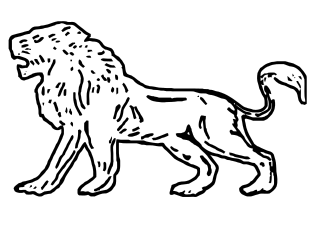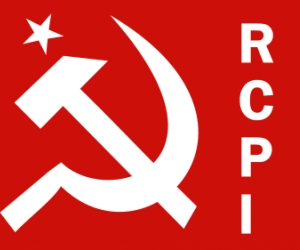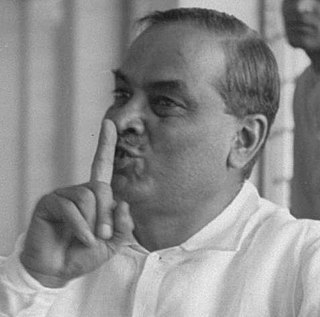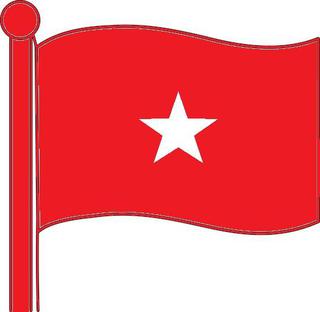Related Research Articles

The Communist Party of India (Marxist) (abbreviated as CPI(M)) is a communist political party in India. It is the largest communist party in India in terms of membership and electoral seats, and one of the national parties of India. The party was founded through a splitting from the Communist Party of India in 1964 and it quickly became the dominant faction.

The All India Forward Bloc (abbr.AIFB) is a left-wing nationalist political party in India. It emerged as a faction within the Indian National Congress in 1939, led by Subhas Chandra Bose. The party re-established as an independent political party after the independence of India. During the 1951–1952 and 1957 Indian general election, the party was known as Forward Bloc (Marxist). It has its main stronghold in West Bengal. The party's current Secretary-General is G. Devarajan. Veteran Indian politicians Sarat Chandra Bose (brother of Subhas Chandra Bose) and Chitta Basu had been the stalwarts of the party in independent India.

The Revolutionary Communist Party of India is a political party in India. The party was founded as the Communist League by Saumyendranath Tagore in 1934, breaking away from the Communist Party of India (CPI). RCPI led armed uprisings after the independence of India, but later shifted to parliamentary politics. The party is active in Assam, Kerala, West Bengal, Telangana and Andhra Pradesh. The party was represented in the West Bengal while being a part of Second United Front Cabinet (1969) as well as in various state government during the Left Front rule in the state (1977–2011). In Assam, the party won four Legislative Assembly seats in 1978, but its political influence has since declined in the state.
The People's United Socialist Front was an electoral alliance in West Bengal, India, formed ahead of the 1952 West Bengal Legislative Assembly election. The front was composed of the Socialist Party, the Forward Bloc (Ruikar) and the Revolutionary Communist Party of India (Tagore).
The United Democratic People's Front was an electoral alliance in West Bengal, India, formed ahead of the 1957 West Bengal Legislative Assembly election. The front was composed of the Jana Sangh, the Hindu Mahasabha, the Revolutionary Communist Party of India (Tagore) and a section of independent Congress dissidents.
The United Left Front was an electoral alliance in West Bengal, India, formed ahead of the 1962 West Bengal Legislative Assembly election. A key issue that provoked various left parties to join hands was the prevailing food crisis in the state. The front comprised the Communist Party of India, the Socialist Unity Centre of India (Communist), the All India Forward Bloc, the Marxist Forward Bloc, the Revolutionary Communist Party of India, the Bolshevik Party of India and the Revolutionary Socialist Party. The front won 74 seats out of 252.

The West Bengal state assembly election of 1957 was part of a series of state assembly elections in 1957.

The Bolshevik Party of India is an Indian political party in India. The party was founded in 1939. The party had a certain role in the trade union movement in West Bengal and was briefly represented in the state government in 1969. In later years the party has played a negligible role in Indian politics.
Saumyendranath Tagore, son of Sudhindranath Tagore, grandson of Dwijendranath Tagore, and grand-nephew of Rabindranath Tagore, was the leader of the Revolutionary Communist Party of India, and the first translator of The Communist Manifesto into Bengali, which was published in Langal magazine edited by Kazi Nazrul Islam.
The Left Front is an alliance of left-wing political parties in the Indian state of West Bengal. It was formed in January 1977, the founding parties being the Communist Party of India (Marxist), All India Forward Bloc, the Revolutionary Socialist Party, the Marxist Forward Bloc, the Revolutionary Communist Party of India and the Biplobi Bangla Congress. Other parties joined in later years, most notably the Communist Party of India.

Legislative Assembly elections was held in the Indian state of West Bengal on 14 June 1977. The polls took place after the ousting of Indira Gandhi's government at the Centre.

Legislative Assembly elections were held in the Indian state of West Bengal in 1982. The Left Front, which had won the 1977 West Bengal Legislative Assembly election, emerged victoriously. The Indian National Congress emerged as the main opposition party in the state, as the Janata Party was disintegrating.

Legislative Assembly elections were held in the Indian state of West Bengal in 1991. The election took place simultaneously with the 1991 Indian general election. The term of the assembly elected in 1987 lasted until February 1992, but the West Bengal Government asked the Election Commission of India to arrange the election at an earlier date.
Kanai Pal was an Indian Trotskyist politician. A labour leader active in Santipur, West Bengal, he represented the area in the state legislature 1962–1969.
Sudhindranath Kumar was an Indian politician, belonging to the Revolutionary Communist Party of India. He served as general secretary of the party 1960–1984, represented Howrah Central constituency in the West Bengal Legislative Assembly and served as Food Minister of the state in 1969 and 1977–1982.

Legislative Assembly elections were held in the Indian state of West Bengal in 1971. The assembly election was held alongside the 1971 Indian general election.
Anadi Das was an Indian politician, belonging to the Revolutionary Communist Party of India.
The Second Ajoy Mukherjee ministry was the coalition government that ruled the Indian state of West Bengal for 13 months, 1969–1970. The Second United Front Cabinet was formed after the 1967 First United Front Cabinet had been dismissed in 1967, President's Rule introduced and a mid-term election held in 1969. The United Front got a renewed popular mandate in the 1969 election, with the Communist Party of India (Marxist) calling the shots but with a non-leftist Chief Minister. The 13-month reign of the Second United Front Cabinet was marked by the struggle for comprehensive land reform, labour disputes, political violence and coalition infighting.

Legislative Assembly elections were held in the Indian state of West Bengal on March 11, 1972.

In 1964, a major split occurred in the Communist Party of India. The split was the culmination of decades of tensions and factional infighting. When India became independent in 1947, differences arose of how to adapt to the new situation. As relations between the Nehru government and the Soviet Union improved, a faction that sought cooperation with the dominant Indian National Congress emerged within CPI. This tendency was led by S.A. Dange, whose role in the party hierarchy became increasingly controversial. When the Sino-Indian War broke out in 1962 Dange's opponents within CPI were jailed, but when they were released they sought to challenge his leadership. In 1964 the party was finally divided into two, with the left faction forming the Communist Party of India (Marxist). The split had a lot of regional variations. It also impacted other organizations, such as trade union and peasant movements. The split has been studied extensively by scholars, who have sought to analyze the various domestic and international factors involved.
References
- ↑ Asish Krishna Basu (2003). Marxism in an Indian State: An Analytical Study of West Bengal Leftism. Ratna Prakashan. p. 2. ISBN 978-81-85709-73-4.
- ↑ Mapam Bulletin. Political Department of the United Workers' Party (Mapam). 1968. p. 14.
- ↑ Registrar for Newspapers of India. Ganabani
- ↑ West Bengal (India). Fact Finding Committee on Small & Medium Newspapers; Sasanka Sekhar Sanyal (1983). Report of the Fact Finding Committee on Small & Medium Newspapers, 1980. Information & Cultural Affairs Department, Government of West Bengal. p. 187.
- 1 2 3 4 5 6 7 8 9 10 11 S. N. Sadasivan (1977). Party and democracy in India. Tata McGraw-Hill. pp. 88–90.
- 1 2 3 4 5 6 7 8 9 10 Alexander, Robert J. Trotskyism in India
- ↑ Cahiers Leon Trotsky , February 1998
- ↑ Suvir Kaul (2001). The Partitions of Memory: The Afterlife of the Division of India. Indiana University Press. p. 108. ISBN 0-253-21566-8.
- ↑ Prafulla K. Chakrabarti (1990). The Marginal Men: The Refugees and the Left Political Syndrome in West Bengal. Lumière Books. p. 88.
- 1 2 Sekhar Bandyopadhyay (3 June 2009). Decolonization in South Asia: Meanings of Freedom in Post-independence West Bengal, 1947–52. Routledge. ISBN 978-1-134-01823-9.
- 1 2 3 4 Communist Party of India (Marxist). West Bengal State Committee. Election results of West Bengal: statistics & analysis, 1952-1991. The Committee. pp. 300–301.
- ↑ Atindranath Bose (1952). Current Affairs. A. Maukherjee. p. 342.
- ↑ Madhu Limaye (1986). The Age of Hope: Phases of the Socialist Movement. Atma Ram. p. 36. ISBN 978-81-7043-044-5.
- ↑ Times of India. A tale of election symbols
- ↑ M.V.S. Koteswara Rao. Communist Parties and United Front - Experience in Kerala and West Bengal. Hyderabad: Prajasakti Book House, 2003. p. 216.
- ↑ Economic Weekly: A Journal of Current Economic and Political Affairs. Vol. 14. January 1962. p. 367.
- ↑ Mapam Bulletin (1-10 ed.). Political Department of the United Workers' Party (Mapam). 1964.
- ↑ Inde. Election Commission (1970). Report on the Mid-term General Elections in India, 1968-69: 1968/69. Government of India Press. p. 24.
- ↑ Subimal Kumar Mukherjee; Indian Council of Social Science Research (1975). Elections to the Howrah Parliamentary Constituency, 1971, with Reference to Three Assembly Constituencies Thereunder. World Press. p. 32.
- ↑ Sajal Basu (1 December 1990). Factions, ideology, and politics: coalition politics in Bengal. Minerva Associates (Publications). pp. 117, 131. ISBN 978-81-85195-26-1.
- ↑ Sutapa Chatterjee Sarkar (2010). The Sundarbans: Folk Deities, Monsters and Mortals. Berghahn Books. p. 157. ISBN 978-81-87358-35-0.